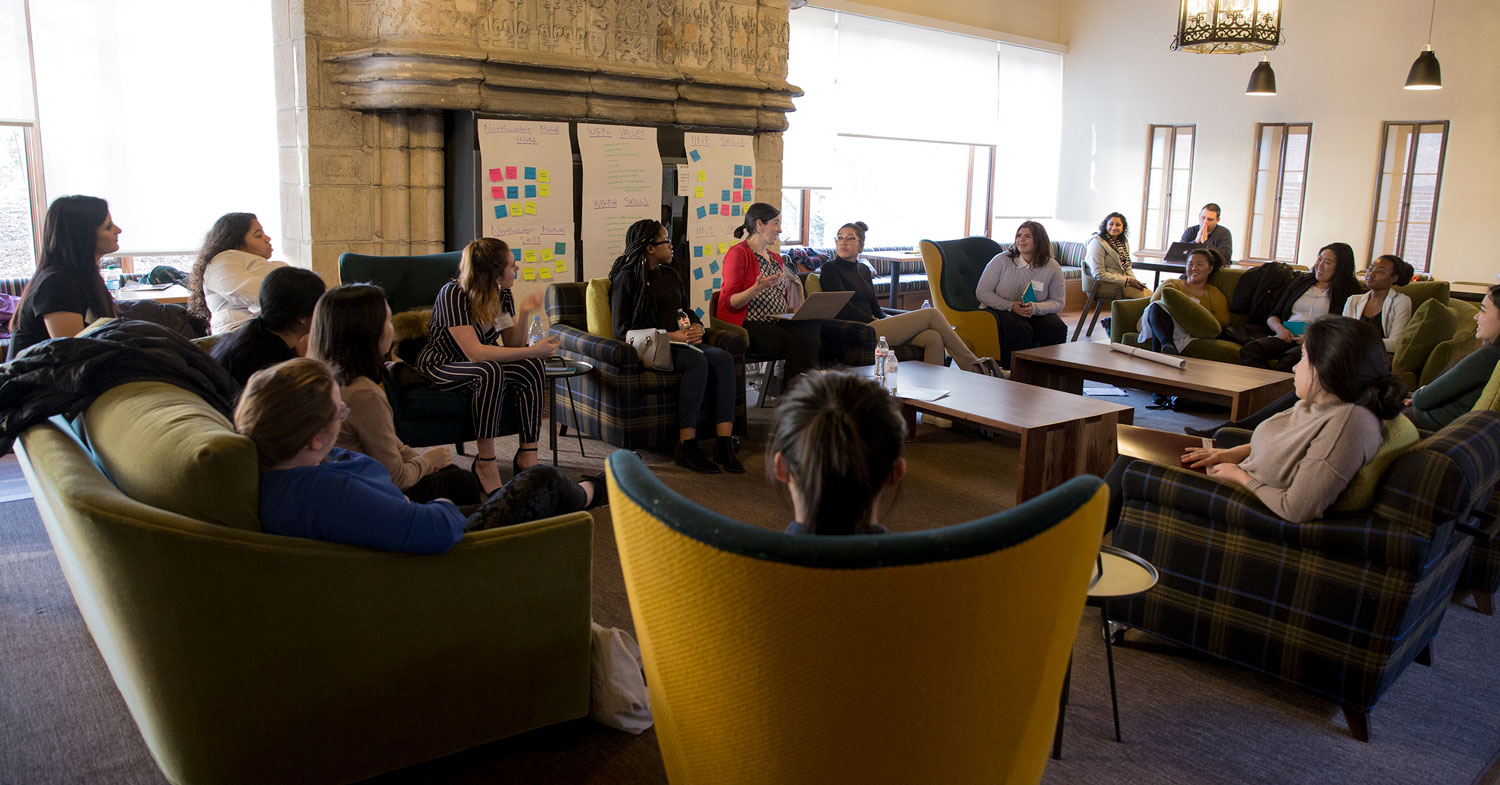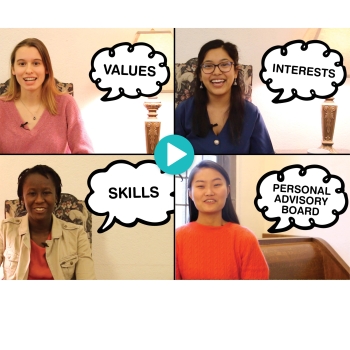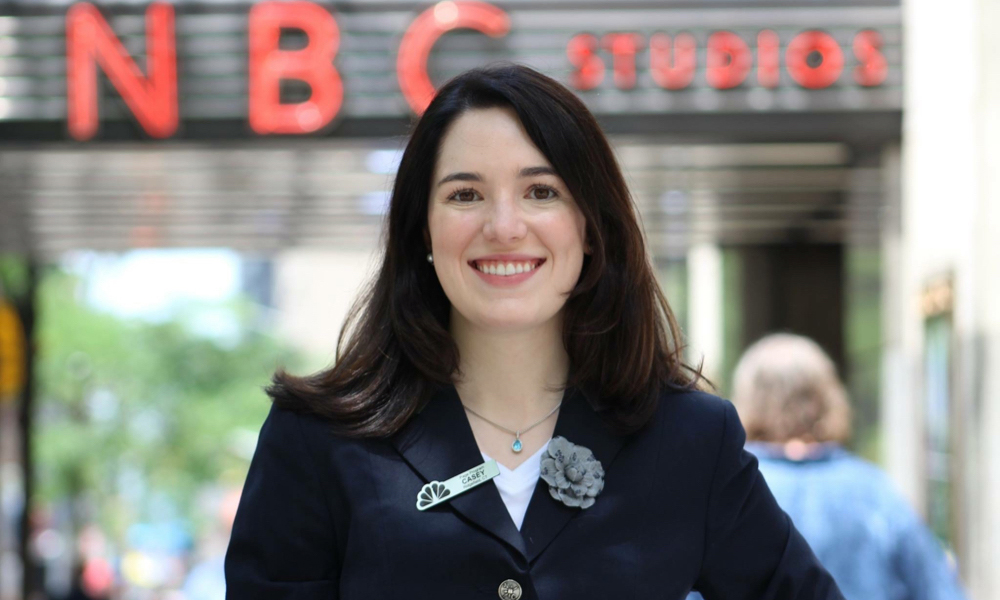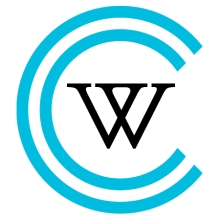Career Exploration

Career Exploration: Wondering where to begin?
What do you want to be when you graduate? Rest assured that most Wellesley students are unsure about their career paths and even those that feel certain often do — and should! — change their course. When beginning your career journey, it can be tempting to imagine that it will be one straight line. However, as countless alumnae will tell you, that’s not the way it works — and that’s a good thing! As the Bureau of Labor Statistics reports, the average worker will have 12-15 jobs in 5-7 different career fields in her lifetime.
We are here to help you navigate your personal career path. Every student is matched with a Advisor for Career Exploration (ACE), who will give you the mentorship, tools, connections, and space for self-assessment and reflection to identify the paths you want to pursue — grounded in a sense of your own values, strengths and interests. Make an appointment with your ACE in Handshake to begin!

Career Essentials: Resumes, Cover Letters, Interviews, & More!
Through the Career Essentials workshop series, you will develop skills and the foundational knowledge necessary to navigate career development. Learn about resumes, cover letters, interviewing, informational interviewing, negotiation, and personal statements.

A Video Series to Help You
Get Started
We’re here to demystify your first steps as you enter the world of work! Through this video series, we’ll help you assess the values, skills, and interests you are bringing to your career journey, and consider who is on your personal advisory board.
Career Exploration Resources
Along with the video series above, the following resources will can help you along your career exploration journey. These resources will be helpful as you attend career fairs, conduct research, identify members of your personal advisory board, and schedule informational interviews or job shadow opportunities.
And remember — your ACE is here to support you along the way! Your Mentor will help you assess your values, skills, and interests, in order to identify a path forward. Schedule an appointment with your ACE in Handshake to get started!

Exploring through Study Abroad
Studying abroad can offer career benefits in addition to academic benefits, by supporting career readiness competencies such as global/intercultural fluency, critical thinking/problem solving, professionalism/work ethic, teamwork, and communications skills. Whether you are thinking about studying abroad, or wondering how to leverage and maximize your study abroad experience, these resources will help.

Interviewing

An interview is a conversation between two (or more) people to determine mutual fit for a particular role and organization. At the end of the conversation, the interviewer(s) should be able to determine whether you are able to perform the responsibilities required for the role. You will be able to determine whether the organization and role are the right next step for you, taking into consideration your interests, academic background, and career aspirations.
Resume Guidelines and Samples

Your resume is generally a one-page document that clearly presents your current and past experiences and accomplishments so that your reader can understand the unique value that you bring to the table. The resume guidelines listed below are available as a downloadable pdf here.
Cover Letter Guidelines and Samples

A cover letter is typically a one-page letter or email that you submit when applying to a job or internship, along with your resume, to connect the dots between your skills and interests and the opportunity. A cover letter is a piece of persuasive writing that aims to convey to the employer why you're a great candidate and fit for the role. You should highlight what makes you stand out from others, but remember to keep your letter focused on how you will contribute to the employer, rather than on how the job will benefit you
Negotiation: An Overview

Negotiation means asking for changes to the terms offered by a hiring organization, which may include any number of factors beyond the salary, including: hybrid schedule, start date, professional development funds, and other factors listed below. This can feel like one of the most intimidating parts of the job search for many people, and you may feel unsure whether you should try to negotiate, and if so, when and how to do it. Preparation, practice, and experience will all help you to negotiate with confidence.





